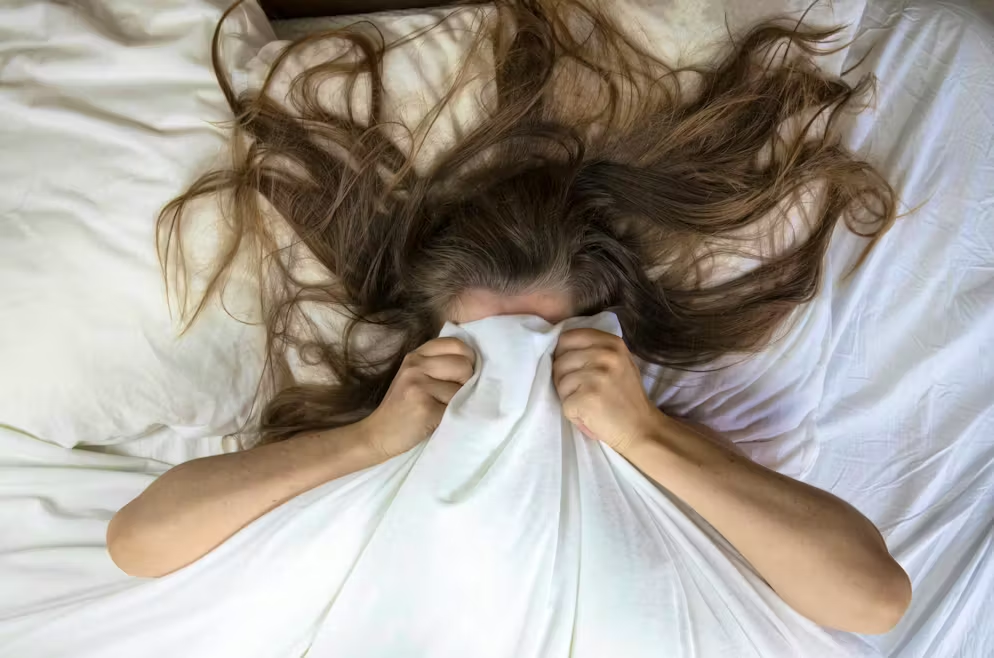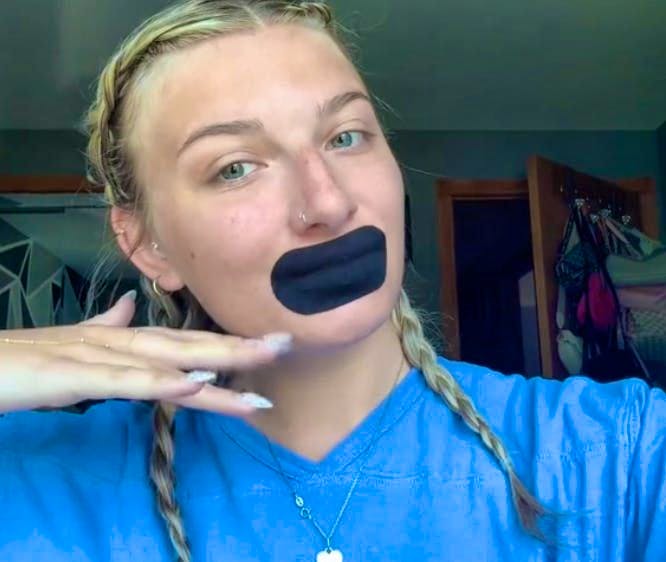How effective are sleep aids? "Getting melatonin on the internet is potentially harmful"
Vanessa Büchel
22.9.2024

Aids such as melatonin gummy bears, scented sprays for the pillow or lavender oil are supposed to help you fall asleep. The self-test shows how beneficial such products are. An expert assesses their effect.
No time? blue News summarizes for you
- Around one in four adults has trouble sleeping.
- For people who have trouble falling asleep at night, there are aids such as melatonin gummy bears or pillow sprays.
- One expert considers melatonin-enriched products to be "potentially dangerous".
- Our author conducts a self-experiment.
We've all been there: tired, you toss and turn between the sheets for a long time until you finally fall asleep. Around one in four adults is affected by sleep disorders, according to the University Hospital Zurich USZ. According to the USZ, a person has difficulty falling asleep if it takes longer than half an hour to fall asleep.
I can tell you a thing or two about that. How many nights have I lain awake in the evening, racking my brains and wondering why I can't finally find my way to the land of dreams? Then it takes all the longer. It's a vicious circle.
Because I keep having trouble falling asleep, I search online for aids and tips. And I actually find what I'm looking for: There are gummy bears enriched with melatonin, scented sprays for my pillow and lavender oil, to name just a few.
Because I love gummy bears, I now treat myself to one from the "Sleep" tin from Bears with Benefits every evening. The "Pillow Mist" from Rituals - contains sandalwood and lavender - promises a "restful night's sleep". Certainly does no harm.
But do such aids help? Even after two weeks of use, I don't really notice any improvement. I still toss and turn from side to side. Restful sleep is still a long way off. I remain faithful to the pillow spray, but the gummy bears end up screwed shut somewhere in the back of the cupboard.
Hands off melatonin products
Barbara Schäuble, head physician for neurological rehabilitation at the Zurich rehabilitation centers, sees no point in such aids. She particularly advises against products enriched with melatonin. "Basically, there is no melatonin deficiency in healthy people. From a medical point of view, there is no need for them to take melatonin," says Schäuble.
Sufficient sleep and good rest are naturally healthy and help the body. However, getting melatonin on the internet without a doctor's prescription is "potentially harmful". Schäuble says: "It distorts the internal clock if it is taken at the wrong time."

Schäuble goes on to explain that non-pharmacological measures, such as progressive muscle relaxation, aerobic fitness, sufficient but not too long periods in bed, reduction of stimulating influences such as nicotine, caffeine, television or mobile devices, are used in treatments at the Zurich rehabilitation centers.
6 tips from the expert for falling asleep relaxed
According to Schäuble, anyone who has trouble falling asleep in the evening should follow these tips.
1. the right conditions: "It is important to create a pleasant atmosphere that invites you to sleep," Schäuble explains. This includes a pleasant room temperature; the optimum bedroom temperature is around 16 to 18 degrees. "The bedroom should be cool and well ventilated." In addition, you should preferably sleep in a dark room and only turn on dimmed lights.
2nd ritual: Our body must be able to adjust to "sleep", as Schäuble adds. This doesn't just happen in ten minutes. The doctor advises: "If you have trouble falling asleep, you should set up a sleep ritual an hour before going to bed to switch off. For example, play a relaxing game or drink a sleeping tea." It is also important not to take the demands of the day into the evening and to avoid things like working late or doing household chores before going to bed. "Instead, sleep-promoting activities such as reading, relaxing yoga or a hot bath are suitable. This sends a signal to your body: now is the time to find inner peace."
3. regularity: always going to bed or getting up at the same time - even at the weekend - can also help. "Our body loves routine. It is important for various biological rhythms in the body," says Schäuble.
4. not lying awake in bed: According to the doctor, anyone who wakes up at night and doesn't fall asleep after 20 minutes should get up instead of lying awake in bed. Schäuble: "Then you could read, for example, until tiredness returns. The bed is the place where you sleep, not where you lie awake. The brain must remain conditioned in this way."
5. little or no midday nap: If you only get a little sleep at night and are exhausted and overtired during the day, a midday nap is a good idea. "But even if it's only a few minutes, a nap can lead to a reduction in sleep pressure," warns Schäuble. The doctor mentions the following consequence: "You are awake for longer in the evening and need more time to fall asleep. It is therefore advisable to avoid taking an afternoon nap." If this is not possible, the expert advises taking a nap before 3 p.m. during the day and limiting it to around 20 minutes.
6. do not exercise just before going to bed: regular exercise has a positive effect on sleep, as it exhausts the body and thus increases sleep pressure. "Only shortly before going to bed should you avoid heavy physical or mental exertion, as this activates the body and leads to the release of stress hormones," says Schäuble. It is therefore recommended to gradually reduce strenuous activities from around two hours before going to bed.
